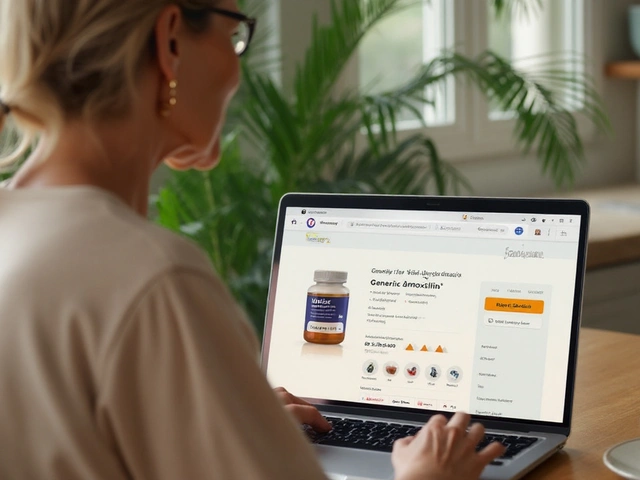
You get your annual blood work back and see it: ALT or AST is slightly high. Your doctor says it’s "mild" and probably from your medication. You leave the office feeling confused, maybe even scared. Is your liver damaged? Should you stop your pill? You’re not alone. Thousands of people panic every year over numbers that, more often than not, mean very little.
What Does "Mild Elevation" Actually Mean?
When doctors talk about mild elevation of liver enzymes, they’re usually referring to ALT (alanine aminotransferase) or AST (aspartate aminotransferase) levels that are 1 to 3 times higher than the normal upper limit. Normal ALT ranges from 7 to 55 units per liter, depending on the lab. So if your ALT is 80 or even 150, that’s still considered mild. It’s not a red flag-it’s more like a yellow light. These enzymes are inside liver cells. When cells get stressed, they leak a little enzyme into the blood. That doesn’t mean the cells are dying. It just means something’s nudging them. And medications are one of the most common nudges.Which Medications Cause This?
Some drugs are more likely to cause this than others. Statins-medications for high cholesterol-are the most frequent culprits. About 0.5% to 2% of people on statins see mild elevations. That’s not a lot. And it’s not dangerous. Acetaminophen (Tylenol) is another big one. Even at the standard dose of 4,000 mg a day, up to 58% of healthy people show a small rise in liver enzymes after just a few days. Yet, most of them never develop liver damage. Other common offenders include:- Amiodarone (for heart rhythm problems)
- Methotrexate (used for arthritis or psoriasis)
- Isoniazid (for tuberculosis)
Why Do Doctors Still Worry About This?
It’s not that doctors are wrong to check liver enzymes. They’re trying to catch something serious-like drug-induced liver injury (DILI). But here’s the catch: true DILI is rare. It usually shows up with symptoms-nausea, yellow skin, dark urine, severe fatigue-and enzyme levels that are way higher than mild. Often, it’s over 5 times the upper limit. The American College of Gastroenterology, the American Association for the Study of Liver Diseases, and the FDA all agree: mild elevations alone don’t mean you need to stop your medication. In fact, stopping it can be riskier than keeping it. Take statins. The FDA removed the requirement for routine liver tests in 2012 after reviewing 31 clinical trials with over 86,000 patients. They found no link between mild enzyme rises and liver failure. The same is true for acetaminophen-unless you’re drinking alcohol or taking way too much, your liver handles it fine.What Happens If You Keep Taking the Medication?
Here’s the good news: in about 73% of cases, the enzyme levels go back to normal on their own-even if you keep taking the drug. A 2021 study in the Journal of Hepatology followed patients on statins who had mild ALT elevations. Half of them kept taking the statin. The other half stopped. After six months, both groups had the same liver health. But the group that kept taking the statin had fewer heart attacks and strokes. One patient in New Zealand, on atorvastatin for five years, had ALT levels between 65 and 85 U/L-well above normal. His ultrasound showed no fatty liver, no scarring. He stayed on the medication. His cholesterol stayed under control. His heart stayed healthy.When Should You Actually Worry?
Mild elevations? Don’t panic. But here’s when you need to act:- Your enzymes are more than 5 times the upper limit.
- You have symptoms: nausea, vomiting, jaundice, abdominal pain, extreme tiredness.
- Your bilirubin or alkaline phosphatase levels are also high-this could mean bile flow is blocked.
- You’re taking multiple medications that affect the liver.
Why Do So Many People Stop Their Meds Anyway?
Fear. Pure and simple. A 2022 survey of 3,500 patients found that 58% stopped their prescribed medication after seeing a mild enzyme rise-without talking to their doctor. Many of them were on statins. Some were on painkillers. They read something online. They panicked. And they put themselves at greater risk. Stopping a statin because of a mild ALT rise doesn’t protect your liver. It increases your chance of a heart attack. The same goes for stopping methotrexate if you have rheumatoid arthritis. The disease flares up. The pain returns. The damage to your joints grows. One study showed that unnecessary discontinuation of statins due to mild liver enzyme elevations costs the U.S. healthcare system over $1.2 billion a year in avoidable heart events and hospitalizations.
What Should You Do Next?
If your liver enzymes are mildly elevated and you’re on medication:- Don’t stop your medicine. Not without talking to your doctor.
- Ask for a repeat test in 2 to 4 weeks.
- Ask if you have any symptoms-nausea, itching, dark urine, yellow eyes.
- Ask if your other meds could be contributing. Even over-the-counter herbs like kava or green tea extract can raise enzymes.
- Ask about your alcohol intake. Even moderate drinking can make things worse.





Comments (13)
Shubham Semwal
Bro, I saw my ALT at 92 last year and panicked like a kid who just found out Santa isn’t real. Stopped my statin cold. Guess what? My cholesterol went through the roof. My doc laughed and said, 'You just gave your heart a death sentence for a number.' Re-tested in 4 weeks, it dropped back to 78. I’m still on the pill. My heart’s fine. Your liver’s tougher than you think.
Sam HardcastleJIV
One is compelled to observe that the prevailing discourse, while ostensibly grounded in empirical data, exhibits a conspicuous absence of epistemological humility. The conflation of statistical norms with physiological integrity constitutes, in my view, a dangerous reductionism. One must inquire: at what threshold does adaptation become pathology? The literature, though voluminous, remains inconclusive on this point.
Mira Adam
So let me get this straight-you’re telling people to ignore their liver enzymes because Big Pharma doesn’t want them to stop taking pills? Newsflash: doctors get paid to prescribe. And you think I’m gonna trust a system that made me pay $200 for a blood test that just says ‘maybe your liver hates you’? No thanks. I’m off the statin. Let the heart attack come. At least I’ll die knowing I didn’t poison myself.
Miriam Lohrum
It’s funny how we treat numbers like they’re moral judgments. ALT isn’t a sin meter. It’s just a whisper from your cells saying, ‘Hey, something’s different.’ Maybe it’s the medication. Maybe it’s stress. Maybe you slept poorly last week. The body doesn’t scream when it’s tired-it murmurs. And we’ve trained ourselves to hear only the scream. Maybe we need to learn how to listen again.
archana das
In India, we say: ‘Dard nahi, dawa nahi.’ No pain, no need to stop medicine. My uncle took methotrexate for 10 years, ALT always a little up. He never felt sick. His joints stayed free. He still walks 5 km every morning. Doctors here don’t panic over small numbers. They watch. They wait. The body knows what it’s doing. Trust it.
Emma Dovener
For anyone reading this: if you’re on meds and your liver enzymes are mildly elevated, don’t stop. But do ask your doctor to check your vitamin D, your alcohol intake, and whether you’re taking any herbal supplements. Green tea extract? Kava? Turmeric pills? Those are silent liver irritants. Often, it’s not the prescription-it’s the ‘natural’ stuff you think is harmless.
Sue Haskett
Wait, wait, wait-I just want to say this again, because I’ve seen this so many times: DON’T STOP YOUR MEDICATION WITHOUT TALKING TO YOUR DOCTOR! Seriously. I’ve had patients quit their blood pressure meds because their liver looked ‘a little funny’-and then they ended up in the ER with a stroke. Your liver is resilient, but your brain? Not so much. Please, please, please-call your doctor before you make a life-altering decision based on a single number.
Jauregui Goudy
Let me tell you what really happened to me-I was on atorvastatin, ALT at 140, felt fine, no symptoms, no yellow skin, no nausea. My doctor said, ‘Keep going.’ I did. Six months later, ALT was 68. My cholesterol? Perfect. My energy? Better than ever. And guess what? My doctor didn’t even mention it again. That’s because he knew: this isn’t a crisis. It’s a glitch. Your liver’s just doing its job. Stop treating lab results like doom scrolls.
Tom Shepherd
so i had a mild elevation too and i stopped my med and now i feel better but also my cholesterol is higher so idk i guess i just dont trust labs anymore maybe theyre wrong or maybe my body just needs a break idk
Rhiana Grob
This post is a quiet revolution in how we think about health. We’ve turned medical tests into verdicts instead of clues. The real danger isn’t a slightly elevated ALT-it’s the fear that makes us abandon what’s working. We need more voices like this: calm, clear, and rooted in science, not panic. Thank you for this.
Frances Melendez
Oh please. You’re just telling people to ignore their bodies because ‘it’s probably fine.’ What about the people who *did* get liver damage? You think they were just unlucky? No-they listened to people like you. Your ‘don’t panic’ mantra is just corporate gaslighting dressed up as medicine. I know someone who died because they trusted a doctor who said, ‘It’s just a number.’ Don’t you dare tell me to keep taking poison.
Jonah Thunderbolt
Let’s be real-this isn’t about liver enzymes. It’s about our collective surrender to algorithmic medicine. We outsource our intuition to labs, then panic when the numbers don’t match our feelings. 🤡 The real epidemic isn’t elevated ALT-it’s the loss of bodily sovereignty. Your liver isn’t broken. You’ve just forgotten how to listen. 🌿✨
Rebecca Price
And yet… here we are. A 2022 survey found 58% of patients stopped their meds because of a mild enzyme rise. That’s not ignorance. That’s fear-fear that’s been weaponized by clickbait headlines and YouTube ‘detox’ gurus. But here’s the irony: the people who panic the most are often the ones who *do* everything right-eat clean, exercise, avoid alcohol. And then they get punished by a number that doesn’t mean what they think it does. You’re not broken. Your liver isn’t failing. You’re just caught in a system that profits from your anxiety. Take a breath. Wait. Re-test. Talk. You’ve got this.